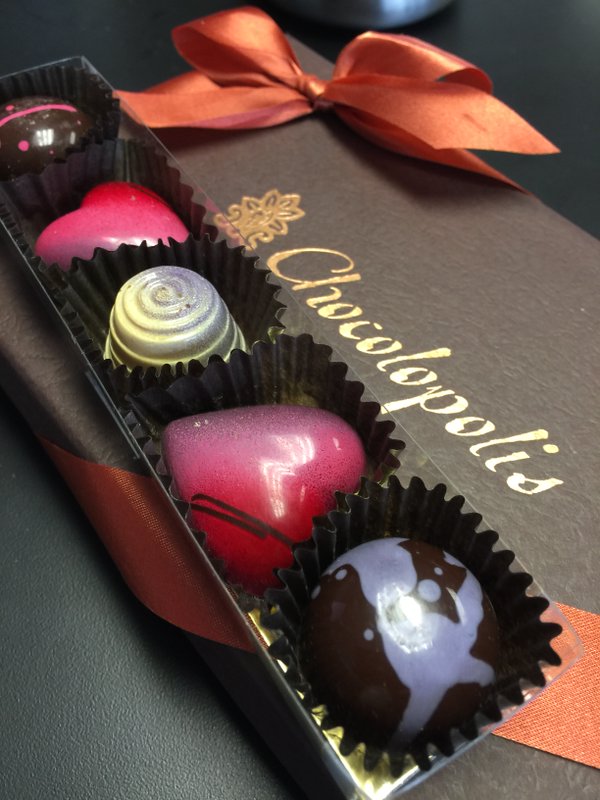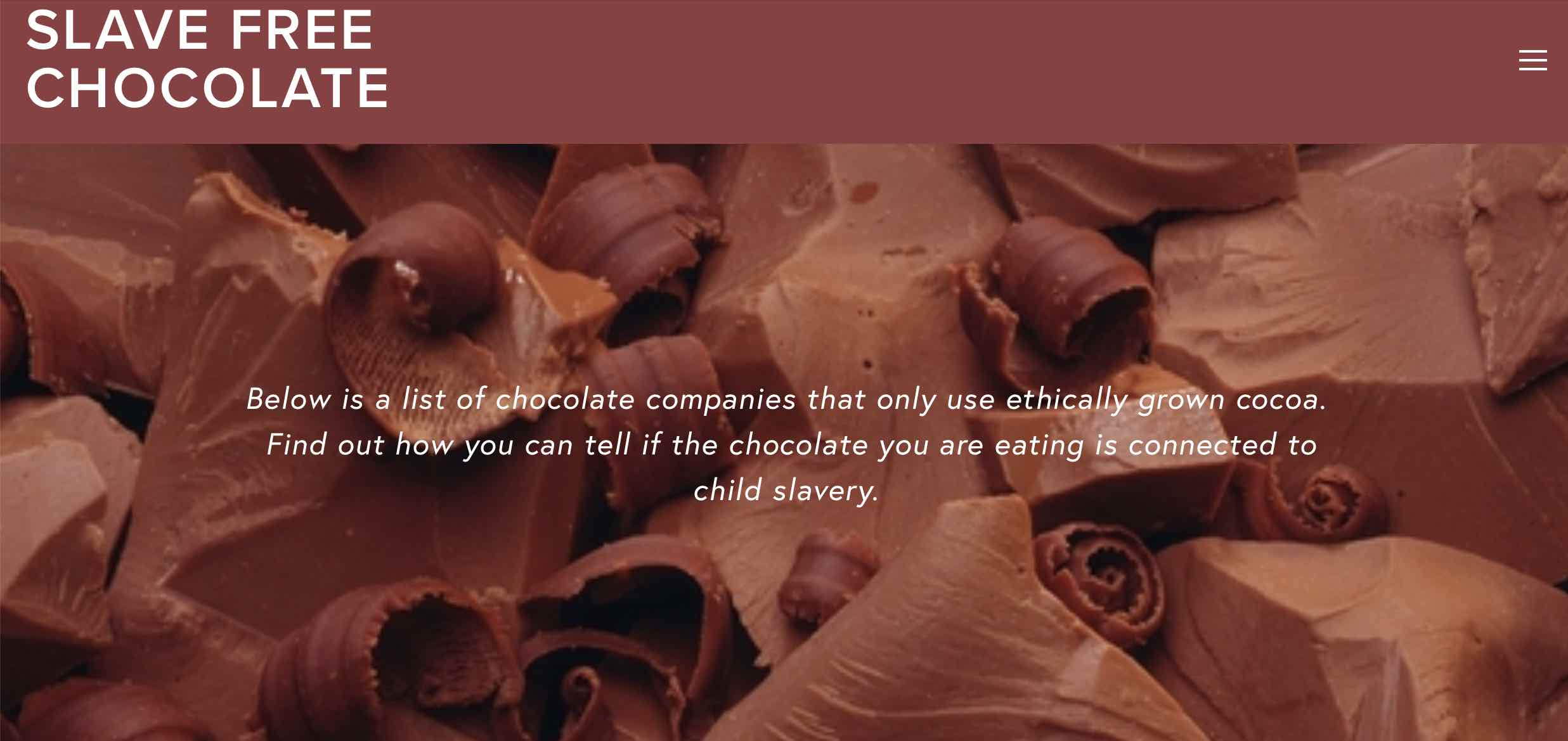A few weeks ago, I had a super fun time talking with Ruby de Luna of KUOW, Seattle’s NPR affiliate, for a Local Wonder segment. This program has a cool format: listeners submit questions about the Seattle area, and then local experts answer them. Listener Beth Ann Johnson had submitted the question, “Why does Seattle have such a large local chocolate industry?” and it was my great pleasure to be one of the folks Ruby interviewed to answer it. You can read and listen to the story here.
I love the final piece, especially the parts where we walk around Bartells drugstore on the Ave and check out the chocolates. (Meanwhile, friends from afar have called me with requests for Forte Chocolates, after hearing founder Karen Neugebauer talk about her confections.) I also asked Ruby if I might share some of our discussion that didn’t make it into the final cut, purely because of time limitations. Ruby agreed, so this week and likely for the next few, I’ll write about the other things we discussed. Ruby’s questions were very thought-provoking for me, and prompted reflection on the unique position that Seattle occupies in the chocolate world.
We discussed many things, one of which of course was that we have a critical mass of highly visible chocolate companies in this area, all of which serve, as it were, our different chocolate “needs.” Among these are Theo Chocolate, the first company to sell chocolate certified both fair trade and organic in the country. Then there is Seattle Chocolates, whose innovations around inclusions, among other things, have an especially Pacific Northwest flavor to them. Fran’s Chocolates has been a pioneer in the confectionery realm, particularly with their now iconic sea-salted caramels. And Dilettante Chocolates Mocha Cafés have helped foster a delicious and chocolate-based dessert culture in this city.
But there are other chocolate epicenters too, where leaders have been shaping the industry in Seattle and beyond. I want to highlight some of them—people and companies that have been influential in my own thinking and research, and elevated our city’s chocolate savvy in meaningful ways.
First up is Lauren Adler, whose Chocolopolis shop in upper Queen Anne has been at the vanguard of chocolate education since it opened in 2008. When I first walked into Lauren’s shop, I was stunned and delighted to see that she had arranged her selection of bars in such a way that chocolate education was inevitable and immediate. Because the origins of chocolate—that is, cocoa beans—are still little discussed (and even less so when Chocolopolis opened its doors), I have often found that people are surprised to learn that where the cocoa comes from matters to the finished product. While many things contribute to flavor, country of origin is a big one: a bar from Madagascar, to take a now-classic example, tastes very different to one from Ecuador. The former’s bright, high fruit notes can make a sharp contrast to the latter’s flowery tones, especially those made using Ecuador’s prized Nacional beans.
Chocolopolis sets the stage for this learning the moment a customer walks in the door, because Lauren arranges her carefully curated selection by country of origin of the beans. I know of no other shop that does this, and the visual arrangement means that shoppers are immediately aware that country of origin is meaningful. Regulars no doubt quickly learn which origins they prefer, and that is already a tremendous insight into the chocolate process.
And all this does not even get to, of course, the stunning line of Chocolopolis’s own confections and bars, which are right there alongside the geography shelves.

Lauren also has some of the highest standards in this industry for the products she will sell. Her process for selecting bars is rigorous, systematic, and inclusive of her staff. This is a tougher job than you might think, as the craft chocolate industry has grown exponentially in recent years, and determining what is technically superior from what is simply novel is no mean feat. But knowing a little about Lauren’s selection process, I feel confident in saying that no bar reaches Chocolopolis shelves without demonstrating a mark of technical excellence. This does not mean that the bars all reflect the staff’s or Lauren’s flavor preferences; it means that they are well crafted, and that we can trust the skill of the maker. Among the explosion of new bars on the craft market, this is the place to go to find the truly exceptional.
Chocolopolis also holds regular educational events, including tastings, happy hours, meet-the-maker evenings, a frequent bar club, and lectures (some of which I have had the honor of hosting). The staff members are among the most educated and knowledgeable in chocolate retail (and I do a lot of undercover questioning at shops around the country). They understand products and process, and can speak knowledgeably to the whole product range. Together, all of this means that Chocolopolis is not only selling chocolate; it provides a place where people can go to learn.
The website offers more resources that help shape a chocolate-educated consumer population. There are details about origin countries and why Lauren chose to arrange her bars geographically. There are also write-ups about the different makers and companies whose products line the shelves, which makes for a nicely curated selection of information about the craft industry. Lauren also maintains an excellent blog as well as a list of chocolate books.
Very few cities can boast this kind of site of chocolate learning: a place where you can stop in at any time, talk to someone knowledgeable about chocolate, and walk away with not only a bar that suits your preferences, but likely some new piece of information about chocolate origins or process. I personally have turned to Lauren many times over the years, with questions about American craft chocolate, and have always been enlightened by her knowledge. As a researcher of both cocoa and chocolate, it’s a boon to me that Lauren Adler and Chocolopolis are right here in my neighborhood, among the leaders in chocolate education in a fast-changing chocolate world.




